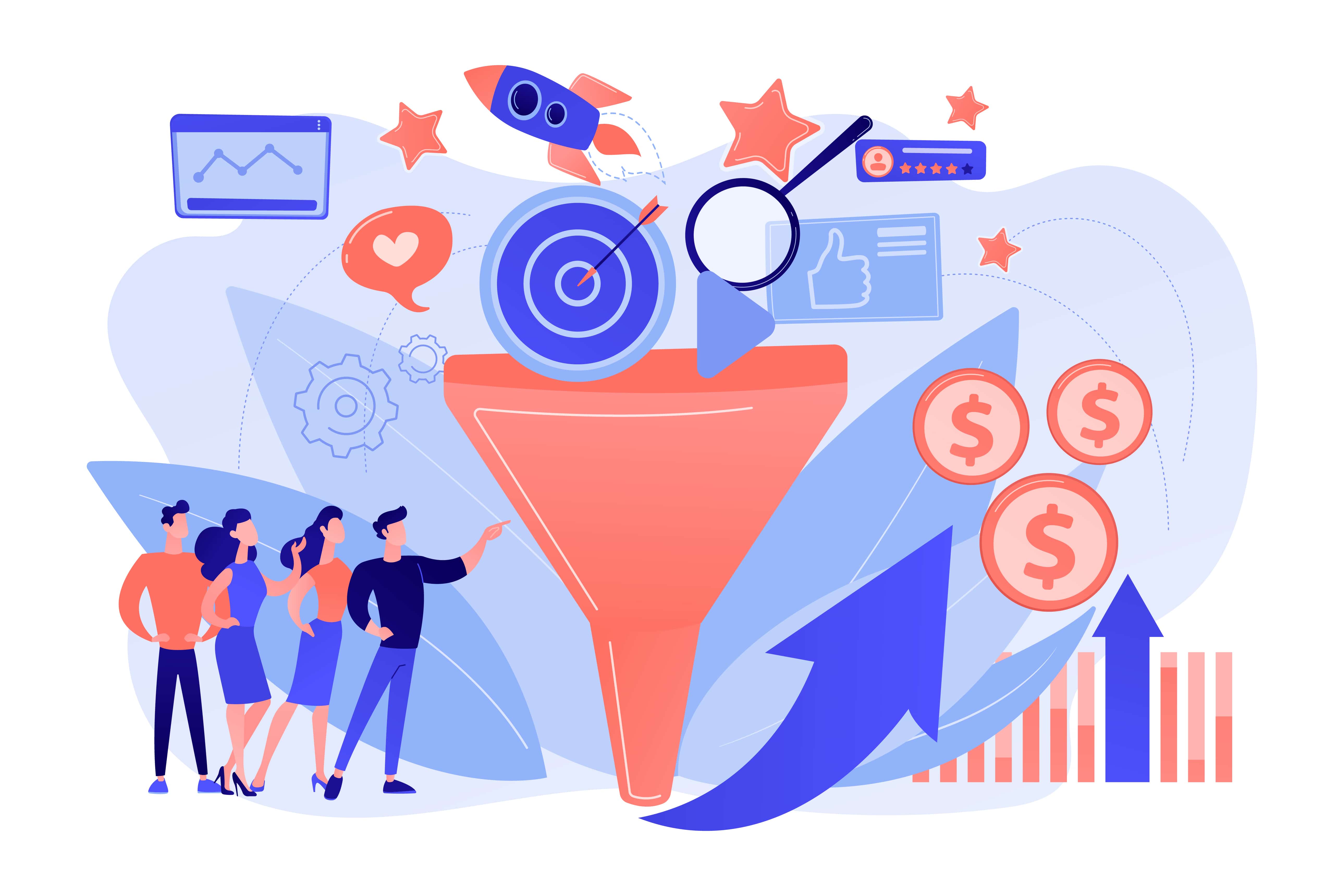The days of marketing and advertising being blind stabs in the dark are over. As the internet and social media continue to grow in popularity, businesses now have access to various Digital Marketing Resources and platforms that allow them to create targeted campaigns with quantifiable outcomes. The generated performance data also simplify attribution and optimization.
What Is Performance Marketing?
"Performance marketing" focuses on conversions. This method helps advertising and businesses reach their target population and get results. In performance-based advertising, clients only pay when they perceive a return on investment. It includes shares, clicks, website visits, conversions, and in-store sales. Performance marketing ads can be seen on social media, search engines, native advertising, affiliate networks, and videos. Organic marketing doesn't include performance marketing. It directs, monitors, and assesses digital outputs or audience interactions. Because everything is quantifiable, brands can calculate ROI for every asset, campaign, and activity.
How Does Performance Marketing Work?
Performance-based marketing is simple. Marketers spread their ads over various platforms and only pay for those that get the most clicks. Google and Facebook advertising through publishers, affiliates, networks, and performance marketing companies. Some of the most influential people involved in performance marketing are:
Advertisers
These are the manufacturers, suppliers, and merchants who have set their sights on performance marketing to advertise a narrow range of goods and services. Sales, product views, inquiries, etc., are all attainable goals.
Publishers or affiliates
These companies help advertisers employ performance marketing channels. Publishers have and administer a blog, website, e-commerce store, or social media account to run performance-based ads for companies. Search and display advertisements are basic advertising tools.
Platforms and networks
Advertisers and publishers can use these third-party channels to plan, launch, and track various digital ads. Text links, banners, tracking the effectiveness of campaigns, etc. Such systems simplify monitoring ads' performance and other key metrics.
Performance marketing agency
In addition to managing the campaign in-house, brands and advertisers can hire a performance marketing agency to handle the logistics. Performance marketing companies take every aspect of the process, from planning to execution, with continuous optimization, adherence to industry standards, and adding value-added services like search engine optimization to boost outcomes.
Let us look at how advertisers pay for the ads:
Cost Per Click (CPC)
The amount of times an ad is clicked determines how much money is made. CPC advertisements are the way to go if you want to increase traffic to your website.
Pricing for Potential Customers (CPL)
The number of leads determines the publisher's fee from the advertiser. The total number of signups is considered a lead.
Average Price Per View (CPM)
The rate of payment is per one thousand ad impressions.
Purchase Price Per Unit Acquired (CPA)
This method of compensation is tied to performing a particular deed. Therefore, advertisers are expected to fork up cash every time their target demographic does an activity, such as seeing a website, disclosing personal information, submitting a form, etc.
Cost Per Sales (CPS)
CPS advertising, commonly used in affiliate marketing, provides revenue if an ad generates a sale
Top 5 Types of Performance Marketing:
You can run your campaigns on one of the five main performance marketing channels.
Search engine marketing (SEM)
Successful digital advertising uses search engines and keywords; performance marketing is no exception. When implementing search engine marketing (SEM), businesses can bid on keywords to have their native ads displayed alongside relevant Google search results. The advertiser gets compensated per click. PPC is another term for paid search.
Native advertising
Native advertising is used by performance marketers to retarget customers with relevant ads. Native ads, as the name implies, feel natural in their setting. One can thoroughly engage with the material and feel compelled to act. Native ads can be measured using PPC and CPM.
Social media marketing
Marketers can target certain demographic and psychographic groups via sponsored content and influencer marketing on the most popular social media platforms and with noteworthy people. Native advertising uses social media platforms' quirks to target users. The amount of likes, shares, follows, subscriptions, comments, sales, etc. are sought for.
Sponsored content
Celebrities, influencers, content sites, PR sites, etc. can provide sponsored material to promote a company's products and services. These highly contextualised posts give companies access to influencers'/media's audiences. CPC, CPM, CPA, or free things are still options.
Affiliate marketing
Performance marketers can also benefit from affiliate marketing to increase conversions, signups, and site visits. Affiliates in this context are influential people or media outlets that promote the adverts in exchange for a financial reward. Banner adverts on websites and social media posts by influencers are only a couple of examples.
4 Benefits of Performance Marketing
In such a case, what benefits can performance marketing offer? Advantages for the marketer in terms of efficiency, cost-effectiveness, and precision in planning and execution.
Advertisers can readily monitor and attribute results from a performance marketing campaign. Thus success can be predicted with some degree of accuracy. As a result, efficiency and return on investment are improved. I take it then that you would like to know its advantages.
Trackable
Modern analytics and tools simplify analyzing, monitoring, measuring, and optimizing performance marketing efforts. You may figure out how well your campaign has done and what changes should be made to make your ads even more effective.
ROI-oriented
Performance marketing focuses nearly entirely on actual results, as opposed to flashy promises. Such advertising has a specific goal: to help enhance ROI consistently and boost all aspects of a business simultaneously.
Transparency
Performance marketing tracks everything. It helps advertisers forecast campaign results and invest appropriately. Your value is proportional to your results. Brand managers may achieve their goals with less uncertainty and in less time.
Versatility
Since performance marketing employs multiple channels, switching focus from a failing medium to a successful one is simple. Since there are numerous potential sources of return on investment, marketers may keep producing results no matter what.
For Effective Performance Marketing, Consider These 4 Pointers
For performance marketing initiatives to be fruitful, brands and performance marketing agencies should adhere to the following guidelines.
Test and improve.
Being in command of many variables gives you a lot of leverage. Don't be afraid to try out different performance marketing approaches and tweak your campaigns until you find the one that works best for your brand. In this manner, you can pinpoint the most successful strategies for your company.
Review omnichannel performance
Integrate metrics from many platforms to get a complete picture of how your audience uses each. In this approach, you may continuously improve the effectiveness of your performance marketing initiatives.
Follow all the rules
Performance marketing lets you convert potential clients from a wide variety of demographics. With this privilege comes the duty to act ethically, refrain from sending misleading messages, and adhere to all policies established by the platform.
Integrate effective UX
In performance marketing, it is not enough to produce many ads. Ensure your website, landing pages, offers, native content, etc., deliver a relevant and exciting experience for your users. It entices visitors to complete the necessary activities and encourages more publishers and platforms to display your advertising.
Conclusion
In 2022 and beyond, performance marketing can be a profitable strategy if implemented correctly. These days, successful marketers aren't content with just creating their brands; they're also putting a premium on data analytics and performance marketing methods that have been shown to increase revenue.












